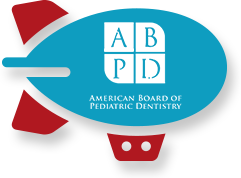Piercings are a trendy way for teenagers to fit in with their friends and express themselves. Teens can pierce just about any part of their body, but it can be particularly concerning when your child gets an oral piercing. Tongue, lip and cheek piercings can damage teeth, gums and cause infections that can lead to more serious illnesses.
Piercings can Damage Oral Appliances
Oral piercings are popular among teenagers, and are surprisingly common. Surveys of adolescents and young adults (age 13 – 29) report that 25% to 35% have a body piercing at a site other than the ear lobe. Oral piercings are mostly made of metal, and they can do real damage to oral appliances like braces or retainers. An oral piercing of any sort can dislodge wires, break brackets and get caught in an appliance, which can lead to bleeding.
The bottom line is this: if your child has an oral appliance, we advise they stay away from any oral piercing until it is removed.
Oral Piercings can Lead to:
Nerve Damage
If your child gets their tongue pierced, they may get minor nerve damage. Simple nerve damage to the tongue will make their tongue feel numb for a few hours after the piercing. Sometimes, the numbness can last much longer and require an appointment with a doctor or dentist. Nerve damage can even affect their sense of taste.
Infection, Pain and Swelling
Mouths are full of millions of types of bacteria, and by exposing an open wound like an oral piercing to bacteria can lead to infection and pain. If not treated, an infection can spread and cause major illnesses down the road.
Chipped Teeth
Hard metal oral piercings often clack against nearby teeth, and can cause serious damage. It is common for those with oral piercings to play with their piercing by moving it around with their tongue or clicking it against their teeth. This can cause them to chip, scratch or lose their teeth. Oral piercings can also damage dental filling and sealants.
If Your Child has an Oral Piercing:
Keep it Sanitized
To lower their risk of infection, have your child clean their oral piercing once per day. Make sure that before they clean it, they thoroughly wash their hands to avoid introducing any germs into their mouth. Unclean piercings can collect food debris and begin to smell, and taste awful.
Remove It Before Physical Activity
If they play sports make sure that they remove their piercing before hitting the field or court. Dental injuries are one of the most common injury in youth sports, and they can lower their risk of losing teeth by removing the metal clacking around in their mouth before participating.
Does Your Child Have an Oral Piercing?
The dangers presented by oral piercings far outweigh the fashionable benefits. In fact, the American Academy of Pediatric Dentistry strongly opposes the practice of oral piercings. Speak with your children about the potential risks involved with oral piercings before they get one. If your child already has an oral piercing, make sure that they keep it clean and disinfected, and that they take it out before taking part in any sports or activities that involve contact, so that they can avoid suffering a serious oral injury.
If your child has prolonged bleeding or pain related to their oral piercing, then make an appointment with our office immediately. They may have an infection, and it must be treated by a pediatric dentist.

